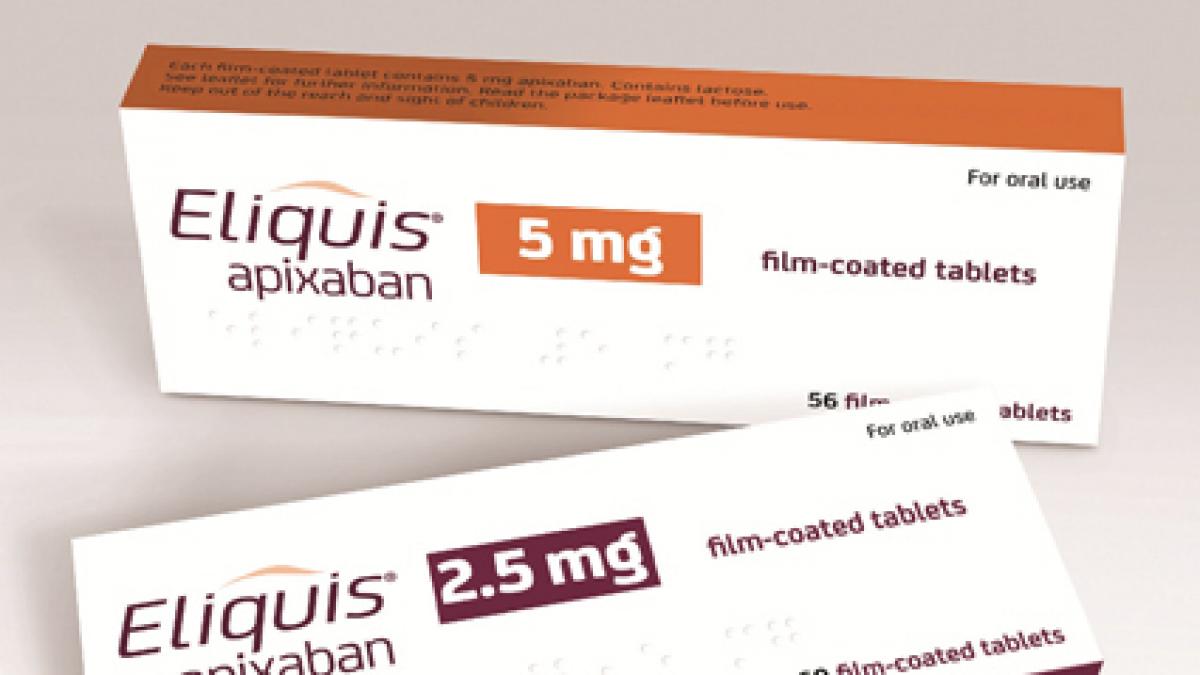Understand Eliquis: Your Guide to Safer Blood Thinning
This comprehensive guide empowers you with essential information about Eliquis. It details its uses, potential side effects, how to take it, and safety considerations. Whether you’re taking Eliquis for atrial fibrillation or to treat blood clots, understanding how to use it safely and effectively is crucial.
Key Takeaways:
- Take Your Treatment exactly as prescribed to manage your condition. However, don’t stop taking it without consulting a doctor, as it can increase your stroke risk.
- Report any side effects to your healthcare provider. After all, Eliquis can cause bleeding.
- Explore options to manage the cost of your Treatment.
- Understand atrial fibrillation and its link to stroke risk. Blood thinners like Eliquis can help reduce this risk.
What is Eliquis?
Aapixaban is a prescription blood thinner that prevents blood clots from forming or worsening. It works by inhibiting clotting factors, reducing the risk of strokes and blood clots.
Be Aware of Side Effects and Interactions:
Tell your doctor about all medications you take to avoid interactions with Eliquis. In addition, watch for common side effects like easy bruising, nosebleeds, and prolonged bleeding. Report any unusual bleeding to your doctor.
Safety Considerations and Potential Side Effects:
While generally safe, it can cause side effects. Be aware of potential risks and take necessary precautions. Common side effects include bruising, nosebleeds, and prolonged bleeding. Report any unusual bleeding or bruising to your doctor promptly. Serious side effects are rare but possible. Seek immediate medical attention for signs of severe bleeding or allergic reactions.
Manage the Cost of Eliquis:
Explore various options to make it more affordable, including insurance coverage, patient assistance programs, and verified online pharmacies. Discuss generic alternatives with your doctor.
Understanding Atrial Fibrillation and Stroke Risk
Atrial fibrillation is a heart condition that significantly increases stroke risk if left untreated. When the heart’s upper chambers beat irregularly, blood may pool and form clots that can travel to the brain, causing a stroke. Consequently, blood thinners can help reduce this risk.
Eliquis: Preventing Stroke in Atrial Fibrillation
The Treatment helps prevent blood clots and reduce stroke risk in people with atrial fibrillation by inhibiting clotting factors and keeping blood flowing smoothly.
Eliquis: How It Treats Blood Clots
This medication is also prescribed for deep vein thrombosis (DVT) and pulmonary embolism (PE) to prevent new clots from forming and reduce the risk of recurrence. In essence, it helps prevent clots from growing larger and traveling to other parts of the body.
Work with Your Doctor to Manage AFib
If you have atrial fibrillation, work closely with your healthcare provider to manage your condition and reduce your stroke risk. Blood thinners may be prescribed. Take your medication exactly as directed and never stop it without consulting your doctor. Monitor your symptoms and report any changes or concerns to your healthcare provider.
Deep Vein Thrombosis and Pulmonary Embolism: Symptoms and Treatment
Deep vein thrombosis (DVT) and pulmonary embolism (PE) are serious conditions with blood clots in the legs and lungs, respectively. Eliquis plays a crucial role in treating and preventing these conditions.
Reduce Your Risk of Recurrent Blood Clots Alongside Eliquis
While this medication is effective, adopting lifestyle changes can further benefit you. For instance, engage in regular exercise, maintain a healthy weight, quit smoking, and attend regular checkups.
Buying Affordable Eliquis: Exploring Options
Research Overseas Sources: Look for reputable online pharmacies such as Prescrimeds to get Eliquis at lower prices, considering shipping fees and customs regulations.
Explore Assistance Programs: Many pharmaceutical companies offer patient assistance programs to reduce their costs for eligible individuals. Check with your healthcare provider or pharmacist for guidance.
FAQ
Can I Stop Taking Eliquis Cold Turkey?
No! Always consult a doctor before stopping your treament. Abrupt discontinuation increases your stroke risk.
What Are the Risks of Tking Eliquis?
The main risk is bleeding. Follow the prescribed dosage and report any bleeding episodes to your healthcare provider.
How Can I Afford Eliquis?
Manage costs with insurance coverage, patient assistance programs, and exploring buying options such as Prescrimeds
How Does Atrial Fibrillation Increase Stroke Risk?
Atrial fibrillation increases the risk of blood clots forming in the heart, which can travel to the brain and cause a stroke. Blood thinners help reduce this risk.
What Are Atrial Fibrillation Symptoms?
Symptoms can include palpitations, shortness of breath, fatigue, chest pain, and dizziness. However, some people experience no symptoms.
How Does Eliquis Treat Blood Clots?
It is prescribed for deep vein thrombosis (DVT) and pulmonary embolism (PE) to prevent clot formation and reduce the risk of recurrence.
Is Eliquis Effective in Preventing Recurrent Blood Clots?
Yes, it has been proven effective in preventing recurrent blood clots, reducing the risk of future complications.
Are There Drug Interactions with Eliquis?
It’s important to inform your healthcare provider of all medications you take, as your treatment may interact with certain drugs. Your doctor will provide you with important prescribing information.
Are There Real-World Experiences or Reviews of Eliquis?
Yes, many individuals have shared their experiences and reviews of this treatment, providing insights into the medication’s effectiveness and benefits. However, remember, personal experiences may vary.



